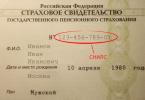Given all the privileges that an EU citizen receives after applying for a passport, it is not surprising that more and more people want to cross the border. But what, besides a high standard of living, so attracts non-European inhabitants of the planet and how exactly to get citizenship in the European Union?
What are the benefits of citizenship of the European Union
EU citizenship opens up broad prospects, in addition, you can get an EU passport without refusing a Russian document, which gives even more opportunities and, most importantly, a choice. True, not all EU countries allow a second passport to their citizen, for example, Germany prefers sole "guardianship". But in Greece and Italy, the Russian passport is perceived as another document proving identity and second citizenship.
If the tourist interest in Europe is purely aesthetic, then the desire to become a citizen of the European Union has even very mercantile reasons:
Video: standard of living in Germany, going to the store - personal experience
Immigration programs for Russians, Ukrainians and other foreigners
Any inhabitant of the world who has no problems with the law, tax or credit debt can apply for an EU passport. But a certain category of citizens has a small advantage in obtaining citizenship.
By birth
There are two options for acquiring citizenship by birth: by right of "blood" and by right of "soil". The first option means that the newborn is assigned the civil status of parents, and the second - the right to citizenship of the territory where he was born. Today, most states in the world give the rights to "blood".
Citizenship by inheritance
The general rules of the EU are as follows: if at least one of the parents is a citizen of the country, their child receives the right to citizenship unconditionally. And also if both parents are stateless and live in the country on a permanent basis. If both have foreign citizenship, then this case is more individual. They are required to live long-term in a country with prospects for citizenship. But in this case, not every EU country is ready to grant the child its citizenship unconditionally.
The right to citizenship remains with the child for life. Even if he did not join it immediately, he can do it on his own after reaching the age of majority or at any time at the request of his parents.

A newborn will have an unconditional right to EU citizenship if at least one of the parents is a citizen of an EU country
Is it possible to give birth in Europe and get citizenship
Today, in the European Union, citizenship by birth with the rights of "soil" can not be obtained everywhere. Immediately after the birth, the child of foreign parents will not be provided with it. To acquire the status of an EU citizen, you need not only to be born in a certain territory of the European Union, but also to live there for a certain amount of time: in France - 5 years, in Germany - 8. Danish law allows you to obtain birth status only on the 19th year of residence in the state, and Belgian - on the 12th, however, out of twelve years you can only live ten. If during this time the parents managed to enter citizenship, then the child can do this with them.
Repatriation
One of the grounds will be the fact if someone had ancestors living in Europe (no further than the third generation) and were European citizens at the same time. The procedure for obtaining citizenship for such people is called repatriation or, more simply, return to their historical homeland. This process takes much less time than immigration through long-term residence. This also applies to the requirements for the period of residence, and the issuance of a certificate of citizenship.
Repatriation is possible to almost any EU country. Only conditions may differ. For example, in the Baltic countries, the basis will be the residence of ancestors exclusively during the period of independence of the republics. That is, relatives who lived there only during the Soviet era will not become an argument. Poland, in addition to having family ties, requires knowledge of the language and culture of the country, at least at a minimal level. And in Germany there is a repatriation program not only for ethnic Germans, but also for Jews.
Refugee status
We are talking about those people who, due to the prevailing circumstances, can no longer remain on the territory of their country. This may be harassment of a political, racial or religious nature, as well as due to involvement or membership in certain social groups and minorities. Here, as in the situation with roots, the refugee will also have to confirm his status, namely, to prove that the danger from which he flees to another country really exists, and the state cannot solve this problem or refuses.
Stages of obtaining citizenship
The European Union is not a single formed state, but an association of various countries and, accordingly, the requirements for the execution of documents and the rules for their submission are different everywhere. But there are also basic criteria regarding the procedure for obtaining documents.
Before acquiring citizenship, each applicant is required to go through two stages of registration: a residence permit and a permanent place of residence, in short, a residence permit and permanent residence.
If a regular tourist visa allows you to stay in a foreign country for up to three months, then a residence permit is a temporary residence permit that allows you to stay in the country for quite a long time, usually one year. Further, at the request of the applicant, the residence permit is extended. A residence permit is issued upon admission to a European university, opening a personal file, after obtaining a work visa, acquiring real estate (both residential and commercial), during long-term treatment in a European hospital, participants in investment activities and refugees, as well as upon reunification with one's family and repatriation.
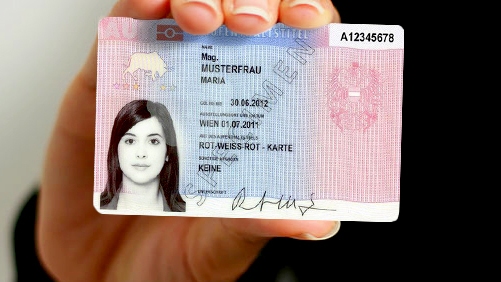
Austrian residence card
The following documents are required to apply for a residence permit:
- international passport;
- medical insurance;
- certificate of no criminal record in the home country;
- confirmation of the source of income (salary, business, dividends or support from a relative). Its level must not be less than the subsistence minimum, which is determined by the state;
- a document on the availability of housing in the country of residence (own, rented or provided by relatives);
- proof of the reason for immigration (for example, family ties, employment contract, etc.).
This is the main list of documents. The immigration service of any country reserves the right to request a number of additional papers and certificates to obtain a residence permit.
Living with a residence permit in one of the European countries for three to five years, you can apply for permanent residence - permanent residence.
How many years you have to live with permanent residence status before obtaining citizenship depends on the chosen state and some circumstances. For example, marriage to a citizen of the country can speed up the process, while breaking local laws can slow it down. The package of documents for obtaining permanent residence is standardized in most states and may differ depending on the reasons for the application, the method of resettlement and other nuances. All this time, the basis for immigration must be maintained. Employment conditions, timely payment of taxes and insurance premiums will be checked, for family members of EU citizens - the preservation of family ties.
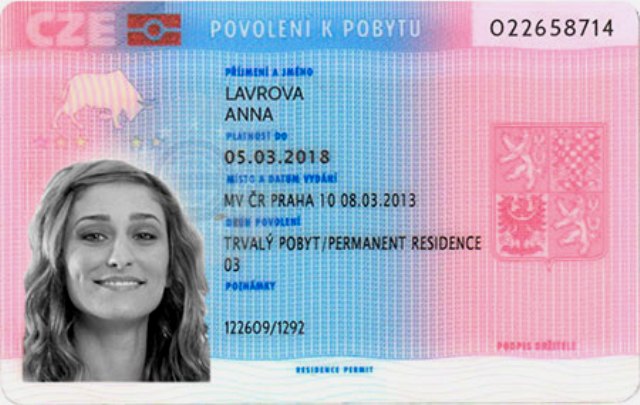
Card certifying permanent residence of the Czech Republic
Not everyone gets to the final stage of a lengthy procedure, to the moment for which it was all started. This happens not because of the complexity of registration, just the status of permanent residence is something that you can be content with without an EU passport, namely, to have all the rights and benefits that EU citizens enjoy, except for the right to vote.
After obtaining the status of permanent residence, it is enough for an immigrant to live in the territory of the chosen country for a few more years and you can ask for the issuance of the main document - a passport. To do this, you need to collect the remaining papers, prove knowledge of the local language, laws, history of the country and its culture. Passing all the exams for a person who has lived in the state for about ten years by this time is not difficult at all. By this time, the mentality of a foreigner had long since caught up with the outlook of an aboriginal, and local customs had turned from strangers into the most familiar.
A package of documents for obtaining EU citizenship
A complete package of documents, the originals of which must be submitted along with an application for the desire to obtain citizenship of a foreign state, using the example of repatriation to Romania:
- passport of the Russian Federation (internal passport of a citizen of the Russian Federation);
- foreign passport of the Russian Federation;
- certificate of absence of a valid criminal record in the territory of the Russian Federation;
List of documents to be submitted in the form of a copy, in electronic or scanned form:
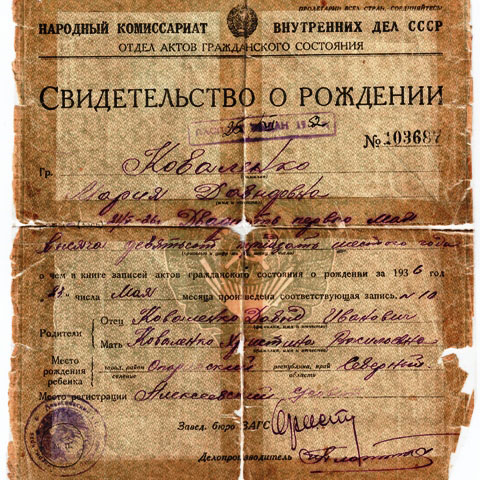
If some documents are lost for any reason, then a request to the registry office at the place of residence or archive will help restore them.
In addition to the basic documents, certificates and certificates may be required on whether the applicant's name has changed, whether he has debts to the state (taxes, alimony, military service) and whether he has been deregistered at the place of residence. After the entire package of documents is collected, the state duty is paid and the application is accepted for consideration.
To translate or not to translate?
Documents must be provided in the state language of the country where the application is being submitted. If they were originally written in another language, an official translation will be required. It is done in a certified bureau, the authenticity is certified by the signature and seal of a notary.
The translation is drawn up on one sheet, separated by a vertical line. Thus, the original text is on one side of the line, and its translation is on the other. When the translation is carried out on a separate sheet, it must be attached to the original and certified by the official seal.
For the translation of documents, there is a whole set of rules that must be completed. For example, as a heading on each sheet of a text-translation, there should be the inscription "translation from language to language" indicating the languages. All graphic symbols, such as coats of arms, signs of national or religious attributes, must be described and translated. If there are any graphic symbols in the original text, they should be described in the translation, etc.
Video: how to apply for Romanian citizenship
Design algorithm
In order to know all the pitfalls of the red tape procedure and be prepared for the worst, it is important to be aware of all the options for submitting documents, to know some of the nuances of registration and to understand the intricacies of migration.
At the stage of applying for citizenship, it will be necessary to resolve the fundamental issue with the current citizenship. Some EU countries allow you not to refuse it and use two passports. And in order to enter the citizenship of others, you will have to renounce your citizenship.
European Passport Office
An application for a desire to obtain citizenship must be submitted to the nearest migration authority of the selected foreign territory, which belongs to the area of residence of the applicant. When the package of documents is collected, submitted and approved, the applicant receives a form stating that his application has been accepted for consideration, and he will apply to the same institution for a decision on his issue.
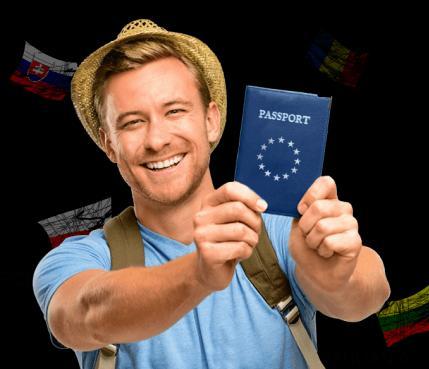
Happy owner of the long-awaited EU passport
Time and money costs
Both the terms and the cost of obtaining EU citizenship are determined by many aspects, in particular, by the fact that the applicant will independently form a package of documents or contact qualified agencies that privately provide services of this kind. The price of such services averages from three to five thousand euros per person. This is a lot, but due to financial costs, personal time is significantly saved and the processing time is reduced due to the experience of lawyers.
The professionalism of those who, instead of the applicant, will draw up citizenship documents for him, can solve much more problems than reducing the time frame, because collecting such important documentation is not an easy task, especially when it comes to crossing the territorial border. Refilling several forms and recertifying a couple of documents is a matter of a couple of months, and although these events are not so dramatic, they are exhausting thoroughly. In addition, out of ignorance, it is possible to accidentally enter the wrong information that will be perceived incorrectly and discredit the identity of the applicant in the eyes of representatives of the future homeland, and re-submission of documents in this case may be rejected for an indefinite period.
Therefore, having the necessary amount in your pocket, you can safely shift the responsibility for collecting and processing papers to the responsible shoulders of trained lawyers. Moreover, today such companies do not charge at all for registration of citizenship of minors and write out wild discounts if the applicant attracts new customers. Thus, you can beat off not only the services of the company, but also the state duty, which usually ranges from one hundred euros.
If the desire to have a European passport coincides with financial opportunities that significantly exceed the payment for legal services, namely, there are a couple of free millions of euros available, then you can reduce the period for obtaining citizenship to six months. One has only to purchase any property in Cyprus and the terms for obtaining citizenship are reduced several times, although in this case the cost of such an adventure increases several times.
In which country of the European Union is it easiest and easiest to obtain citizenship
There are countries in the European Union, where it is almost impossible to become a citizen, because the requirements for future citizens are too high, and not everyone can fulfill them. For example, in Austria and Denmark, applicants for citizenship must pass the most severe test, and not all of them pass it.
But fortunately, there are places in Europe where newly arrived citizens will be welcome.
The easiest way to get an EU passport is to become a citizen of Cyprus, although for this you will have to purchase expensive real estate. But there will be no tedious waiting in intermediate procedures like temporary residence, as well as knowledge of the language and legislation.
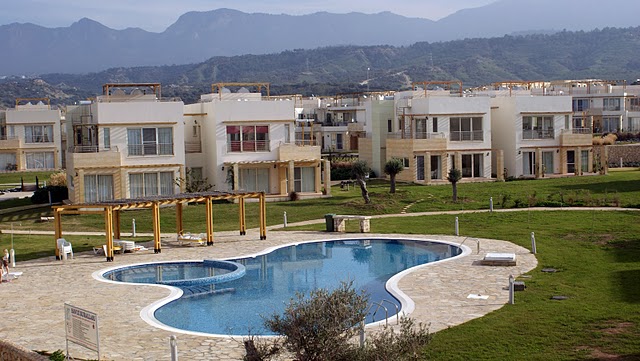
real estate in Cyprus, even economy class costs a lot of money
If you open your business or buy real estate in countries such as Malta, Bulgaria, Greece, Spain, Portugal or Latvia, this will also significantly speed up and simplify the acquisition of citizenship. This diagram is very easy to explain. With your financial injections, through the purchase of the same real estate or investments, you support the country's economy, and in gratitude for this you receive a coveted passport. Everything happens not so fast, but it significantly simplifies the registration process.
The only thing worth paying attention to is the countries that are members of the EU-8: Lithuania, Latvia, Slovenia, Estonia, Hungary, Poland, the Czech Republic and Slovakia. These states adhere to some restrictions for their citizens regarding freedom of movement across the border and work or study outside it.
Nevertheless, there is no such strict language barrier in Latvia, and adaptation there will be easier and faster, and in order to obtain a residence permit, it is enough to have an amount of one and a half million rubles - that is how much money will be enough to buy at least some real estate in this country. You can get a residence permit in just 30 days by opening a bank deposit for this amount or buying bonds with this money.
In the same way, and for the same money, you can gradually settle in Greece.
In Hungary, by giving the state one and a half million rubles and receiving bonds in return, you can purchase a residence permit and permanent residence, and return the entire amount back five years later.



